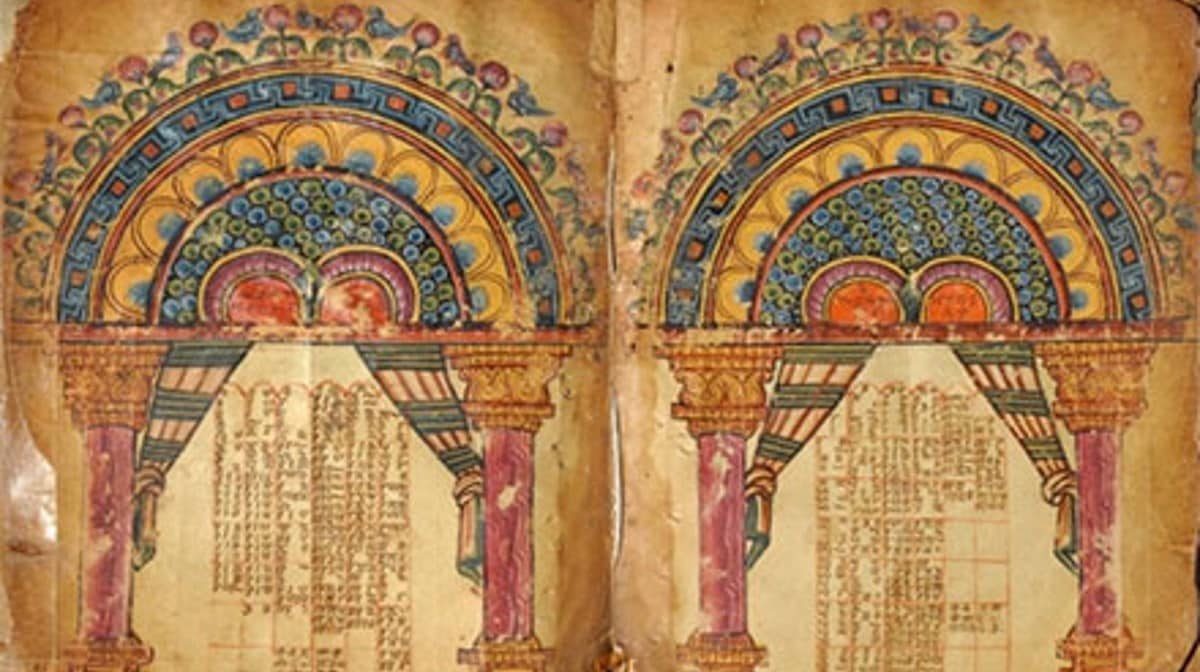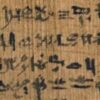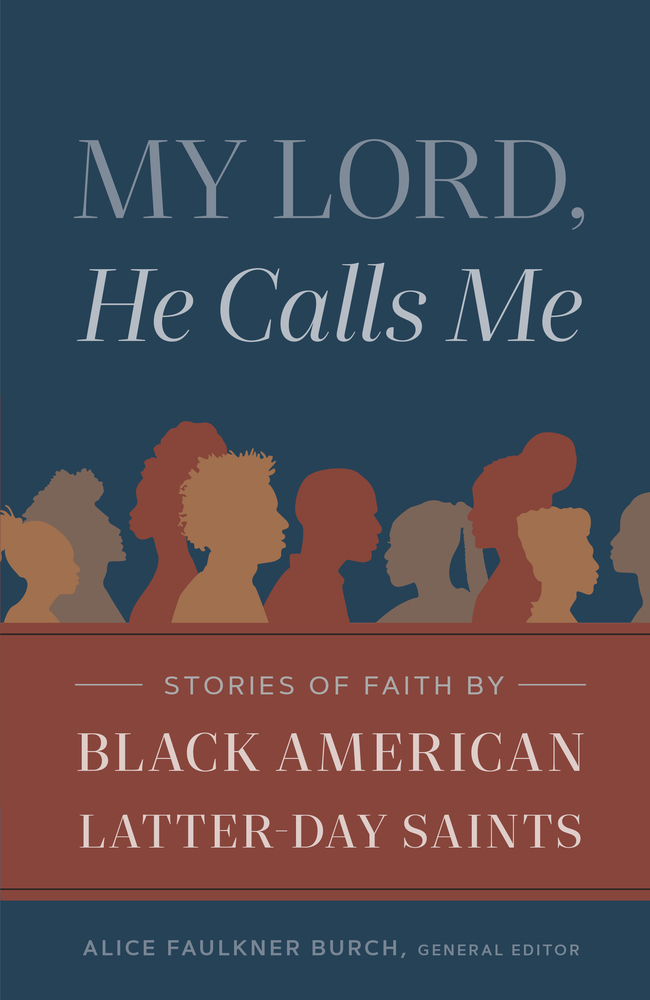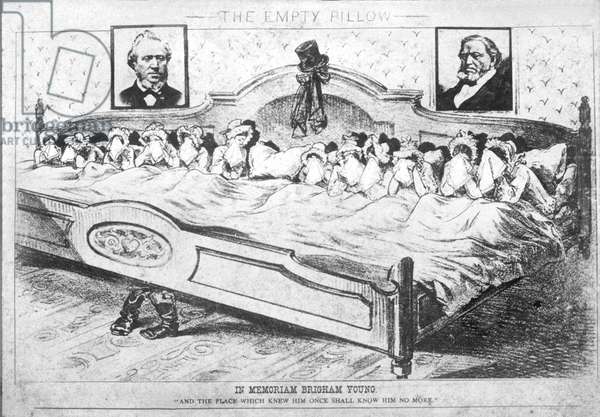-
•
•

An interesting point made by the late Eastern Orthodox bishop Kallistos Ware is that the books that were selected to be contained in the Bible are a tradition that developed within and passed on by the Proto-Orthodox Church. The process by which that tradition solidified into official canon was a gradual (and messy) one. In a recent interview at the Latter-day Saint history blog From the Desk, biblical scholar and BYU professor Thomas Wayment discussed that process of canonization of the New Testament (in connection with a chapter in Ancient Christians: An Introduction for Latter-day Saints). What follows here is… Read More
-
•
•
JWHA 2023 Conference Call for Papers September 21-24 Fredericksburg, Texas “Restoration Tales from Texas Dust” Led by independent Apostle Lyman Wight, a number of early Latter Day Saints departed from their homes with the letters “GTT” (Gone to Texas). They were headed to the independent Republic of Texas on a colonizing mission and searching out a homeland for the Latter Day Restoration. These sturdy pioneers included many who became ancestors for thousands now found in Restoration movements. The Wight Colony dissolved with his passing in 1858. The remnants scattered throughout the country, from Bandea County, Texas, to San… Read More
-
•
•
9 responses

The socioeconomic dynamics around schools are funny things. The largely liberal social scientists I spent time around earlier in life could wax on about the evils of gentrification or white flight, but when it came to their own children they would move, slit throats, or do whatever it took to be in the catchment area for a prestigious school. And I don’t blame them. (However, for all the energy, time, and money you pay to win the “good school” game you could probably give them a killer home education—especially given all the amazing online resources available nowadays—but I digress). However,… Read More
-
•
•
20 responses

I was doing some reading recently and came across a surprising moment where early Latter-day Saint John D. Lee casually included a reference to Heavenly Mother. On September 27, 1857, Lee visited a ward in Provo and was invited to speak. He did so, and at the conclusion of his remarks, he said that: “He was trying to live near unto the Lord”, and encouraged the congregation “that we all might have an interest in the Kingdom that we might be permitted too return too our father & mother in peace.” (Provo Utah Central Stake general minutes, 1849-1977; Volume 10,… Read More
-
•
•
Patriarchal blessings have been an ongoing part of the Latter-day Saint tradition from very early on. As something that many Latter-day Saints experience, it’s an area that many people have questions. In a recent interview at the Latter-day Saint history and theology blog From the Desk, Latter-day Saint historian Keith Erekson discussed some of the insights about patriarchal blessings he had in connection with his book Making Sense of Your Patriarchal Blessing. What follows here is a co-post to the full interview (a shorter post with some excerpts and discussion). When I first studied the Church History in the Fulness… Read More
-
•
•
5 responses

A few months ago I presented an initial foray into AI Gospel art. Since then the technology has developed even more; still, I don’t think we’re quite to the point where manual-only artists will be completely out of work, but we are certainly getting there. As far as I can tell, Midjourney appears to be the best publicly available text-to-image program. However, unlike some of the others it’s a little complex to get started, and they only allow a certain number of generations before they start charging money. Still, I thought I’d give it a try with Church-related themes. Writing… Read More
-
•
•
2 responses

Joseph Smith’s 1843 appeal to the Green Mountain Boys, ghostwritten by W. W. Phelps and published in (the original) Times and Seasons contains a series of foreign language quotations that are interesting not only because they include using the GAEL as a source for Egyptian. Read More
-
•
•
2 responses

To say that My Lord, He Calls Me: Stories of Faith by Black American Latter-day Saints, ed. Alice Faulkner Burch (Salt Lake City: Deseret Book Company, 2022) is an important collection would be an understatement. While small (clocking in at 225 pages), the volume contains around 35 chapters written by Black American Latter-day Saints, including conversion stories, testimonies, and other experiences and thoughts. The contributors cover a range of ages and time periods, including the words of 19th century Latter-day Saints–like Jane Elizabeth Manning James or Samuel Davidson Chambers–to contemporary teenagers in the Church. In addition, several poems are also… Read More
-
•
•
23 responses

How did Joseph Smith and his associates create a translation that shows knowledge of a grammar that presumes the existence of the translation? Given what we know of the documents and the timeline for the translation of the Book of Abraham, the only way to solve the chicken-and-egg problem is this: Read More
-
•
•
2 responses

The previous posts have put us in the vicinity of catalyst theories of revelation, but none of the formulations that I’ve seen are adequate for describing the Book of Abraham translation, and I think “catalyst” is the wrong chemical metaphor. Read More
-
•
•
6 responses
I’ve talked before about how if we knew and experienced the early history of the Church of Jesus Christ of Latter-day Saints for ourselves, we might be surprised by who were the most influential members in shaping the developing Church. Dr. John Milton Bernhisel is another of those individuals who had a surprisingly large impact compared to how often we talk about him today. In a recent interview at the Latter-day Saint blog From the Desk, Bruce W. Worthen–author of Mormon Envoy: The Diplomatic Legacy of Dr. John Milton Bernhisel (University of Illinois Press, 2023)–shared insights on this important character… Read More
-
•
•
12 responses

The GAEL provides for a mode of interpretation that finds expansive (but not unlimited) meaning in seemingly simple characters. Zakioan-hiash, as we have seen, is both a name, a word with a specific phonetic realization, and the equivalent of at least one sentence. Read More
-
•
•
17 responses

The meme is from a friend in response to a Dutch rabbi’s harsh response to documentarians trying to shoot footage in his synagogue for a piece on Jewish excommunicant Baruch Spinoza. I’m not posting it to make a point or as some kind of an argument; I just thought it was funny. Recently, whenever there is an excommunication that makes the news a common response has been to invoke 1 Corinthians 12, a powerful discourse on the importance of diversity and unity in the Church that uses the metaphor of the Body of Christ as the Church. I get the… Read More
-
•
•
2 responses
“Some called her the poetess, the presidentess, and the priestess.” This description of Eliza R. Snow and her titles was shared by Jenny Reeder in a recent interview at the Latter-day Saint history blog From the Desk about the Eliza R. Snow discourses that have been published by the Church Historian’s Press. What follows here is a copost to the interview (a shorter post with excerpts and some discussion). In describing who Eliza R. Snow (Smith Young) was and why she is so notable, Jenny Reeder wrote: Eliza R. Snow was one of the most influential Latter-day Saint women of… Read More
-
•
•
2 responses

Champollion – and Egyptian – aren’t the only influences on the GAEL. Read More
-
•
•
10 responses

Two related features of the GAEL that have been the focus of the most controversy and puzzlement are how one character might represent much longer English texts, and the GAEL’s use of a five-fold system of degrees to expand a character’s potential meaning. Read More
-
•
•

In his 2009 article, Chris Smith argued for the textual dependence of the Book of Abraham on the GAEL. While Dan Vogel’s recent book about the Book of Abraham and related apologetics strenuously objects to any suggestion that the GAEL was reverse engineered from the translation of Abraham, Vogel nevertheless entirely rejects the basis of Chris Smith’s argument. Read More
-
•
•
I’ve always wondered how well the talks of different general authorities translate to other languages. For example, I can imagine that a lot of the alliteration that a few apostles adopt in their addresses doesn’t carry over. And I know from my work on translating Spanish hymns that translating between languages is an inexact science and involves compromises to keep certain aspects of the original language – rhyme, meter, literal meaning of words, nuances conveyed in idioms, etc. It’s almost impossible to carry all of those together across from one language to another. Largely because of this, translations of the… Read More
-
•
•
25 responses

With the preliminary deliberations out of the way, it’s time for a close look at the GAEL. Read More
-
•
•

Before we get to the heart of my argument – which is coming up next in a long post with a detailed look at what’s in the GAEL – we need to look at what Joseph Smith and his associates would have known about Champollion and the decipherment of Egyptian hieroglyphics by 1835. Read More
-
•
•
5 responses

Scholars from seemingly every corner of Mormon Studies agree: While working on the Egyptian papyri, Joseph Smith and his associates were either unaware of Champollion’s recent work to decipher Egyptian hieroglyphics, or simply unaffected by the recent advances in Egyptology. Not only is this position untenable, it’s demonstrably incorrect. Read More
-
•
•
15 responses
Plural marriage in Nauvoo continues to be one of the thorniest issues when discussing the life and legacy of Joseph Smith. One of the major works that helped shed greater light on the roots of plural marriage and the women who practice it with the Prophet is Todd Compton’s book, In Sacred Loneliness, published in 1997. Not too long ago, a sequel or companion volume called In Sacred Loneliness: the Documents was published by Signature Books. Todd Compton recently discussed this latest volume in an interview at the Latter-day Saint blog From the Desk. In describing the original book, In… Read More
-
•
•
One response
“Most readers of Matthew’s Gospel take one look at that first page full of ‘begats’ and impossible-to-pronounce names and quickly turn the page.” So begins Julie Smith’s thoughtful essay “Why These Women in Jesus’s Genealogy?”, which is available free of charge in the Segullah journal (2008) and is reprinted in her book Search, Ponder, and Pray: A Guide to the Gospels. “But,” Smith continues, “Matthew was a deliberate writer.” She goes on to highlight that among more than 25 men in Jesus’s line, Matthew includes just four women (plus Mary), and they aren’t the matriarchs, as one might have expected… Read More
-
•
•
20 responses
There was a deacon in my childhood ward that badly wanted to be a soldier when he grew up; he went all out with the camouflage, shooting, and playing “steal the flag” in the woods with glowsticks (a piece of rural Mormon culture that I hope does not die with the decline of Latter-day Saint BSA troops). However, he changed his mind abruptly after watching the Omaha beach landing scene in Saving Private Ryan, which I suspect modified his idea of what battle looked like from some PG-13 situation–everyone is killed with one shot, the enemies lack basic marksmanship, and… Read More
-
•
•
Emmeline B. Wells is a crucial figure in the history of the Church of Jesus Christ of Latter-day Saints. She was a leader in the Church as a Relief Society president, an advocate for women’s suffrage, a noted periodical editor, an early settler in Utah, etc. In a recent interview at the Latter-day Saint history blog From the Desk, Cherry Silver and Sheree Bench discussed the Emmeline B. Wells diaries that the Church Historian’s Press has published online. First off, the interview shares some information about who Wells was and why she was notable: Emmeline B. Wells was the most… Read More
-
•
•
5 responses

Besides the large public Christmas concerts at Temple Square, the Church also offers a less spectacular, pre-recorded one-hour Christmas concert for online view, worldwide. For 2022 the Church produced “The Promise of Christmas”. Bravo! I don’t know if they employ a Diversity Consultant, but they certainly hit the mark. Opening: immediate focus on two singing non-Caucasian girls, next broadening to the full One Voice Children’s Choir. The kids all casually dressed, naturally moving on stage. Black presenter Stephen Jones, in his warm, easygoing style, sets the tone for an intimate musical journey with church members from around the world. The… Read More
-
•
•
6 responses

A few years ago, I talked about Christmas songs that are included in the various translations of the Latter-day Saint hymnbook that are not in the English hymnal. I’m hoping to share the music and translations of those songs over the next few Decembers, starting this time with the music in the French hymnbooks. In this case, there are three Christmas hymns in the hymnbook that appear in the French edition that aren’t in the English: “He Is Born, the Divine Christ Child” “Lo, How a Rose E’er Blooming,” and “Sing We Now of Christmas“. He Is Born, the Divine… Read More
-
•
•
29 responses

Growing up in 1990s Orem the figure of Hugh Nibley held a sort of symbolic significance that was greater than the sum of his scholarly parts. The not-so-subtle subtext of the myriad anecdotes about his prodigious memory and learning is “see, if this really smart person believes it, then there must be some really good answers to whatever issues people have.” Often, Nibley was a sort of placeholder for people who didn’t have the time (or resources, especially in pre-Internet days for people who couldn’t drive to a good university library and use their card catalog) to investigate for themselves. … Read More
-
•
•
How does a faith that claims global reach while being rooted in a specific Anglo-American context in the 19th century interact with cultures that are different from the Anglo-American culture of their time? Further, how did they approach that issue while also being a pariah among the general Anglo-American culture? These are some of the types of questions that are examined in Amanda Hendrix-Komoto’s Imperial Zions: Religion, Race, and Family in the American West and the Pacific. In a recent interview at the Latter-day Saint history blog From the Desk, Amanda Hendrix-Komoto discussed some of her study. The book Imperial Zions studies… Read More

